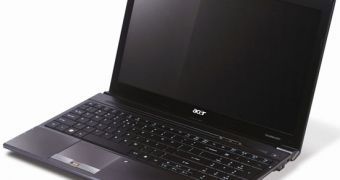Most of the people that want or wanted netbooks now have them. This is the main reason why the netbook market has seen a significant decline in sales over the past few months, as IDC reportedly found. It seems that the once promising devices, which saw a popularity burst in 2009 because of their low prices, are no longer as promising as they initially were because the market has become saturated. The main reason for this, according to the research firm, is supposedly the fact that, despite PC makers' efforts to set them up as a category of their own, netbooks are still seen as nothing more than other PCs by consumers.
"Everyone tried to make these [netbooks] out to be a different category," said IDC's Richard Shim. "In fact, people think of them as just another type of PC."
As IDC's estimates indicate, the netbook market will still keep growing, reaching a 33.6% sales increase year-over-year (to 4.8 million). This growth, however, is far lower than the estimates given last year. This may prove quite problematic to those PC suppliers that were planning on relying on the strength of this market.
Acer, for instance, is one of the main advocates of the netbook PC, to the point where it is even experimenting with dual-boot devices with both Android and Windows. Nevertheless, fact remains that this enthusiasm isn't shared by many of its peers, including top level players like HP and Dell.
Recently, rumors arose suggesting that Dell and HP significantly reduced their investments in 10.1-inch mobile PCs, the latter even considering total withdrawal from the business. PC suppliers were likely hoping that new technologies from Intel, Microsoft, AMD and NVIDIA would raise the performance bar on these entry-level devices with little or no impact on price.
Unfortunately, at present, new models can't boast a significant increase in specs over the previous generations, which is the most obvious reason why end-users aren't interested in upgrading.
Computer makers now seem to be turning towards the nascent tablet market in search of new business opportunities.

 14 DAY TRIAL //
14 DAY TRIAL //